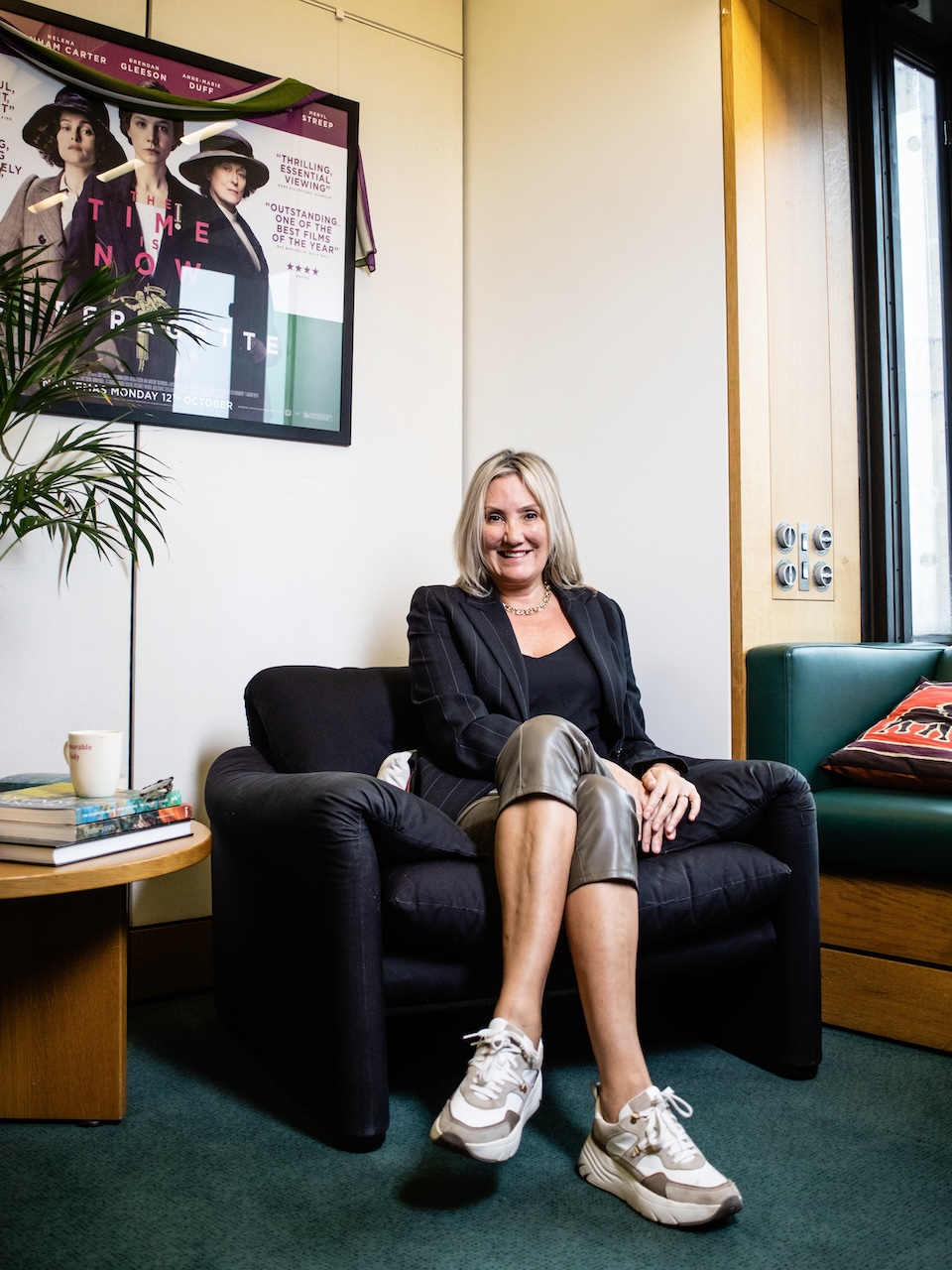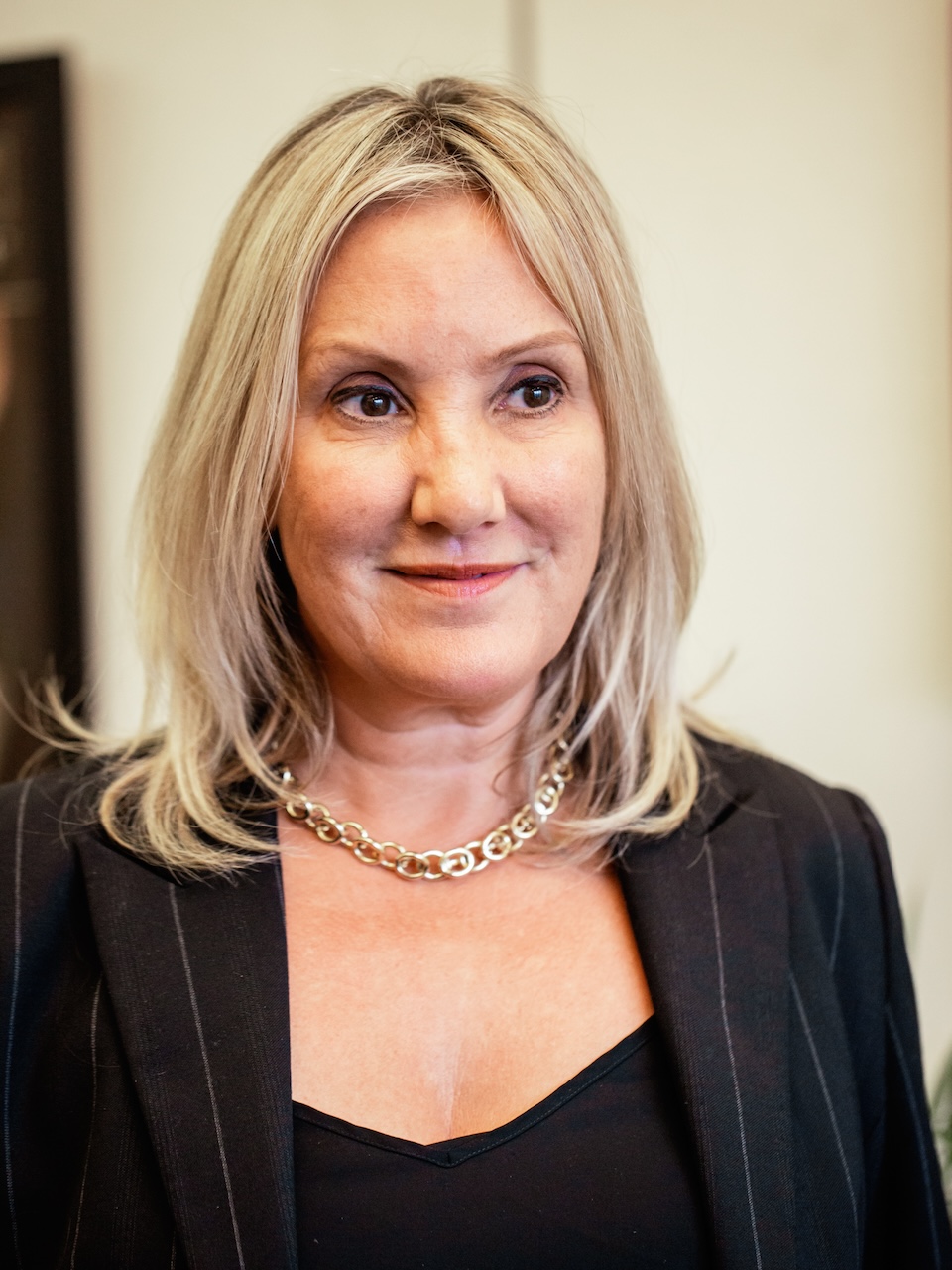The Caroline Dinenage interview: Is there a ‘two-tier system’ in English football?
Caroline Dinenage in her office (Photography by Louise Haywood-Schiefer)
7 min read
The Conservative chair of the Culture, Media and Sport Committee talks to Sienna Rodgers about English football's 'two-tier system', why she hates running and her biggest regret as an MP
Caroline Dinenage describes herself as “super sporty” – but that is mostly because “I just don't really like exercise unless it's disguised as a game”, the Culture, Media and Sport Committee chair explains.
“I honestly can't think of anything worse than going running. I know some people just love it. I was with a friend of mine who does these ultra-marathons on Saturday evening and she was extolling the virtues and how she loves it so much. I literally cannot think of anything I would less like to do than just run for eight hours.”
“I think I just bottled it. I voted the way that I thought my constituents were asking me to”
The Conservative MP for Gosport says she supports local sports teams, such as Hampshire Cricket and the semi-professional Gosport FC, and is a lifelong fan of Portsmouth FC. Her father, TV presenter Fred Dinenage, was once a director of her home club “Pompey”.
“Which is obviously problematic because the Prime Minister is originally from Southampton and there is huge rivalry. When my colleagues are queuing up to ask him very serious questions about government matters and lobbying, my question is normally based upon how Southampton is doing compared to Portsmouth,” Dinenage laughs.
The committee chair says she always looks at football “from the point of view of the fans”. Asked about the four-year-long investigation of 115 charges against Manchester City, many of them alleged financial irregularities, the MP is clear that the Premier League’s probe is not up to scratch.
“It's taking too long, and it feels unfair to teams like Everton for whom the decisions have been already made and the penalties have already been handed out. Teams like Everton, they've taken points deduction, they've taken punishment, and meanwhile Man City, who've got a whole rack of allegations against them, are tied up in legal red tape. That could go on for years,” she says.
“It does sometimes feel like there's some kind of two-tier system here. When the boss of the Premier League came and gave evidence to the select committee, he spoke about ‘big clubs’ and ‘small clubs’. And I find that quite – we all, actually, the whole committee found that a little bit puzzling, because actually there shouldn't be a different standard of behaviour depending on the size of the club.”
In response, chief executive Richard Masters said the Premier League's profitability and sustainability rules apply equally to all clubs, adding: “It would be incorrect to infer from this that there is any unfair treatment based on club size”.
 Caroline Dinenage (Photography by Louise Haywood-Schiefer)
Caroline Dinenage (Photography by Louise Haywood-Schiefer)
Her constituency, Gosport, has been a safe seat for the Conservatives historically – held in 2019 with a strong majority of over 23,000 votes – but, even so, Dinenage may not necessarily return to her current role in the new parliament. After the election, the Speaker’s office will apply a formula based on the number of seats won by each party to establish how many committee chairs they should be allocated.
Speaking before the general election announcement, Dinenage says she is “really frustrated by the delay” in the new football regulator being set up. Now, with Parliament shutting down for the six-week campaign, the Football Governance Bill is being dropped. Tory MP Tracey Crouch, who chaired the review of English football that recommended an independent regulator, has confirmed the bill will “progress no further”, though there will be a “ready-made” piece of legislation for the next government to use.
“One of my best pals in Parliament is Tracey Crouch, who is obviously utterly terrifying on the basis that she did this amazing piece of work and pulled together brilliant recommendations. Then it has been sitting there, waiting. And meanwhile, we've seen a whole range of issues that have impacted the world of football,” Dinenage says.
She warns that the regulator would not be a “silver bullet”, however. “Successive government ministers have described this football regulator as somehow like a silver bullet, like there's this cavalry coming over the hill that's going to be the antidote to all the challenges within the football industry. I don't think it will be that.”
Should it have a broader remit? “Potentially,” she replies. “My worry is to what extent decisions can be called in by the regulator, what powers they actually have. We'll only understand that once it's up and running.”
What of the idea of fan representation at board level, as in Germany? Dinenage says the voice of fans is crucial. “Look at the situation in Reading, where they've just got this terrible owner who's effectively asset-stripping the club. It's absolutely heart-breaking for fans in Reading that they have no say over the future of their club.”
(After our interview and the election being called for 4 July, Dinenage adds that she is “optimistic that greater protections for clubs at all levels can be delivered after the general election in the interests of fans up and down the country who love our national game”.)
Despite being a former equalities minister and now chair of a committee that looks at sport, there is notably little on the record of Dinenage’s views on trans participation in sport. What approach would she take?
“When it comes to sporting activities, if somebody has a physiological makeup that is going to make them bigger and stronger and faster and have a physical advantage over other competitors, then that is not a level playing field. So, I do think, when it comes to sporting fixtures, that has to be the premier concern.”
 Caroline Dinenage (Photography by Louise Haywood-Schiefer)
Caroline Dinenage (Photography by Louise Haywood-Schiefer)
Pressed for further details, she says: “It does depend on the sport. It's obviously up to each of the sport governing bodies, but they do have to make sure they've got a strong position on it.”
The MP goes on to explain her reticence on the issue. “There are people with wildly different views on both sides of this argument, and pretty much everyone else in the middle who has a fairly balanced approach is afraid to open their mouths at the risk of being cancelled. At the risk of being completely obliterated on social media,” she says.
“It’s an issue that I've taken quite a lot of time to find out about. But for the reasons I've said, it's not something I tend to speak very much about, because it's so emotive and there's very loud voices on both sides of this argument that will drown out the moderate voices in the middle.”
Speaking to The House in her parliamentary office, Dinenage sits surrounded by film posters: Pride, about gay activists who helped striking miners in the 80s, The Danish Girl, an Eddie Redmayne biopic about trans painter Lili Elbe, and Suffragette, the Carey Mulligan historical drama.
Perhaps it is no surprise the MP regrets opposing the Marriage (Same Sex Couples) Bill, now Act, at its Second Reading back in 2013.
“On that very first vote, I was getting so much correspondence from my constituents that I think I just bottled it. I voted the way that I thought my constituents were asking me to. Then, as I was making that vote, I thought, ‘I can't do that again because it goes against my own personal viewpoints’.
“Actually, I began to think about the huge silent majority that were out there that weren't writing to me, which is why I didn't vote against it at any point after that. But I do regret it because I think you have to vote with your conscience.”
She adds: “It was a hard lesson. It's my biggest regret in my voting history, I guess.”
